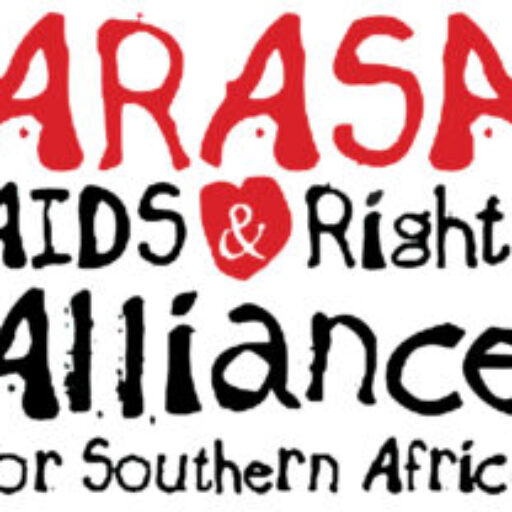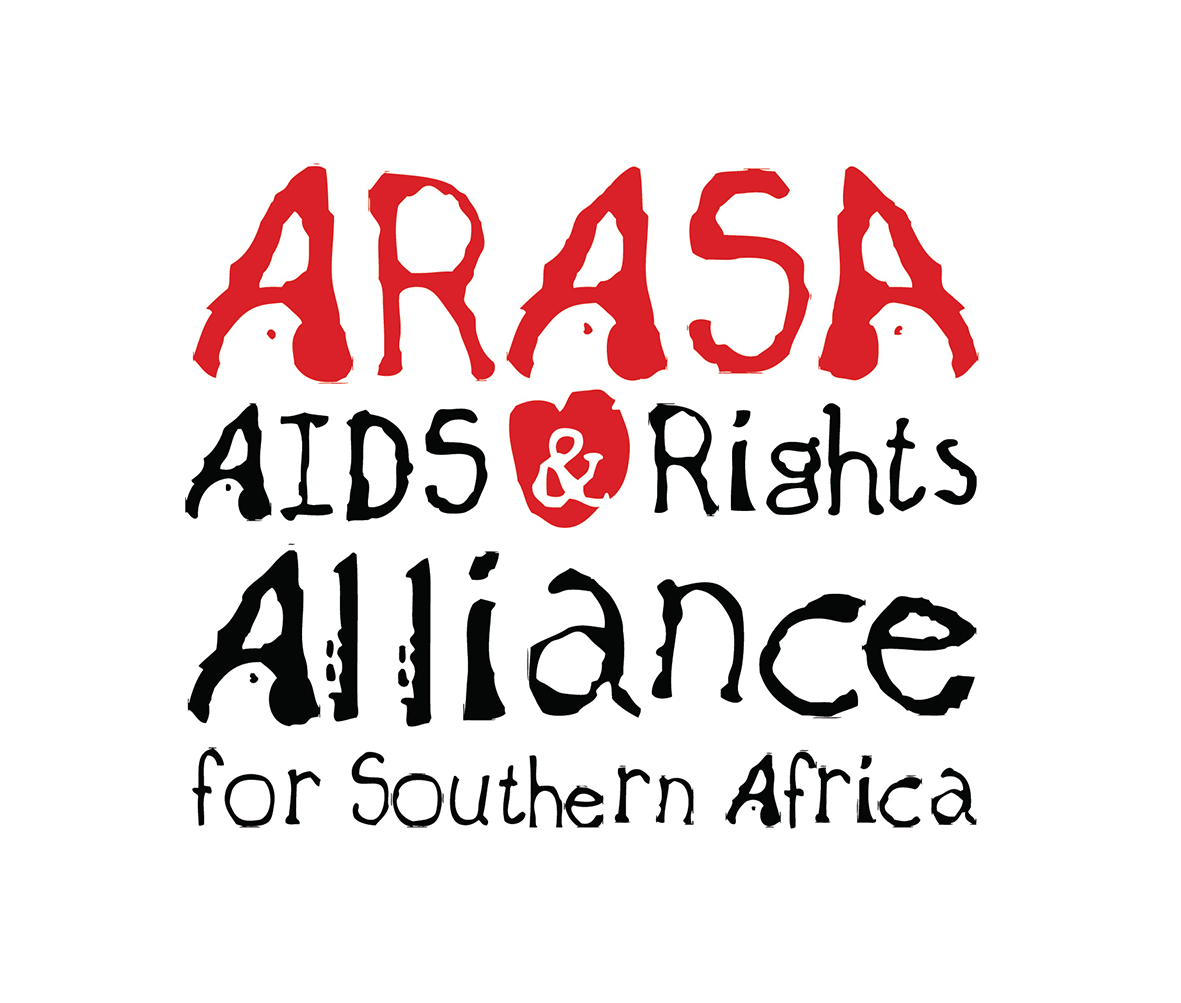EXPRESSION OF INTERESTS
CALL FOR EXPRESSION OF INTEREST-Consultant to conduct the end ofProject Evaluation for the Love Alliance Regional Advocacy Project
- Background
Established 21 years ago, the AIDS and Rights Alliance for Southern Africa (ARASA) was created to galvanise a movement of progressive civil society actors to advance a human rights-based response to HIV in Southern Africa. ARASA sets out to build a cadre of civil society organisations in the region to raise awareness and understanding by both communities and policy makers about the need for human rights to be at the centre of national HIV (and subsequently TB) responses and to strongly advocate for a human rights-based response.
ARASA has successfully raised and increased the visibility of sensitive and contentious human rights issues such as the Sexual and Reproductive Health and Rights (SRHR) of women, sex workers, transgender people, men who have sex with men and people who use drugs. This has contributed significantly to enhanced efforts by governmental and regional bodies, to mainstream human rights in HIV and TB policy and programming and has contributed towards the removal of legal and policy barriers in several countries in the region.
2. Context
ARASA recognises that, while its work has immensely contributed to the HIV and TB responses in Southern and East Africa, the battle is not over until policy changes are fully effected and implemented. Civil society’s efforts to increase the removal of legal barriers as well as to increase legal literacy, access to justice and positive law enforcement need to be sustained, scaled up and broadened beyond HIV and TB, to contribute to the achievement of the Sustainable Development Goals (particularly Goals 3: Good Health and Wellbeing; Goal 5: Gender Equality; and 10 Reduced Inequality) and the African Union Agenda 2063. We believe that this will ensure tangible impact in the dignity, health, and overall wellbeing of people on the margins of society.
Systematic sexual and reproductive rights violations, especially against key populations, fuelled by barriers embedded in laws, policies, the economy, and social norms and values—especially gender inequality— persist across Southern and East Africa and, in some countries are escalating. These include laws that restrict women’s and adolescents’ access to health services by requiring third-party authorisation, laws that require service providers to report personal information, laws that criminalise same-sex relationships and sex work and laws that prohibit provision of and access to abortion services. The situation is fuelled and exacerbated by new waves of conservatism and fundamentalism that amplify state-sponsored violence and criminalisation and undermine individual agency. Punitive laws, policies and practices remain the ‘norm’, with severe implications for the right to health of individuals and responses to health by countries.
3. Description of the project
The SADC region has several policy commitments regarding SRHR/HIV that specifically speak to the health needs of KPs; yet crucial KP programmes are losing ground. This project aimed to increase knowledge and understanding of various key populations regional commitments and strengthen civil society with capacity to monitor and evaluate them. Also, the project sought to capacitate CSOs to effectively report on progress on the implementation of these regional commitments at national level and more specifically with the ability to hold their national human rights duty bearers to account.
Throughout the project, ARASA worked with its regional partners to develop and implement a capacity building toolkit through innovative technologies and online resources in three languages (English, Portuguese and French). This was mainly in a bid to increase knowledge and understanding of the commitments in a more simplified and contextualised manner. Key to note is that this was influenced by a mapping exercise which served as the benchmark of the entire project which gave an outlook of how the region was progressing with regards to the implementation of the commitments. The project also facilitated effective accesses for Key Population led CSOs in the region to directly engage with the SADC PF. The project, entitled the Love Alliance Regional Advocacy on SADC Commitments for Key Populations (KPs), was implemented from 2022 to 2023.
4. Purpose of the End of Project Evaluation
ARASA is therefore seeking the services of a consultant to conduct an end of project evaluation of the Love Alliance Regional Advocacy on SADC Commitments for KPs. The End of Project Evaluation will be conducted in the SA region, focussing on three countries namely Mozambique, South Africa, and Zimbabwe. The main purpose of this evaluation is to assess the outcomes and experiences of ARASA’s partners in the Love Alliance Regional Advocacy Project. The Evaluation will follow the five criteria of The Organisation for Economic Cooperation and Development’s (OECD) Development Assistance that include impact, effectiveness, sustainability, efficiency and relevance. The evaluation should provide detailed conclusion and formulate specific recommendations and is also intended to explore the strengths and weaknesses of the programme. It should highlight all factors influencing the effective and efficient implementation of the interventions and their contribution towards the realization of the overall programme goal. In addition, it will identify good practices and formulate recommendations for similar programmes.
5. Specific Objectives of the End of Project Evaluation
The evaluation will respond to the following specific areas of analysis and synthesis:
5.1.1 Impact
The evaluation will assess the impact of the programme on the expectations set out in the proposal. The impact could either be positive and negative or intended and unintended. Reporting on results should be differentiated between the outputs, outcomes and impact that has been achieved.
5.1.2 Effectiveness
The evaluation should assess the effectiveness of interventions and answer the following questions:
- Was there a clear understanding of roles and responsibilities by all parties involved, and were all the available technical and financial resources adequate to fulfil the programme plans?
- How effective were the programme Monitoring and Evaluation systems and indicators in capturing results and how was it used by the grantees?
- Was relevant information systematically collected, collated and utilized?
- Finally, to what extent did the programme achieve its goal and whether the implementation model was the most appropriate?
5.1.3 Sustainability
The sustainability of programme interventions is a key objective.
What programme components appear likely to be sustained after the programme and how?
What needs, if any, were identified for further capacity building and support to promote the likelihood of sustainability?
What needs, if any, were identified for further capacity building and support to promote the likelihood of sustainability?
5.1.4 Efficiency
This will measure how economically the resources/inputs (funds, expertise, time, etc.) converted to results.
- To what extent were the costs of the programme justified by actual results, considering relevant alternatives?
- Were the programme results able to build on other initiatives and create synergies with other programmes and partners?
5.1.5 Relevance
This will evaluate the extent to which the objectives of the programme were consistent with the evolving needs and priorities of key populations taking into consideration the target countries’ and regional contexts.
5.1.6 Lessons learned
- What good practices can be learned from the programme that can be applied to similar interventions in the future?
- How effective was the programme structure for knowledge management and sharing?
- Based on the outcomes of this programme, what are the key lessons learned that ARASA could take away?
6. Method and Approach
The evaluation is a 3-country process that will look at conducting assessments with the partners in all the target countries. The evaluation will provide a qualitative and quantitative assessment of the programme using a mixed-method approach. Besides collecting quantitative data along the programme outcomes and outputs, the evaluation is expected to use various qualitative methods to collect the required information, including but not limited to focus group discussions, key informant interviews etc. The quantitative methods will be applied largely towards programme-generated data and review of existing reports and M&E tools available.
NB Please note that the consultant will have the freedom to develop a comprehensive methodology that they deem fit for the exercise.
6.1. Evaluation Design/Methods
The Consultant will among other activities will be expected to:
- To present the inception report with a detailed methodology
- Conduct desk review of relevant documents
- Present draft report
- Submit the final report.
7. Qualifications
Interested candidates should have at least the following qualifications:
- Master’s degree in Public Health, Social Sciences or a relevant field with a focus on SRHR
- Demonstrated experience in leading regional research studies (end project/programme assessments) and review processes in Sub-Saharan Africa.
- Proven experience in evaluating regional or multi-country advocacy projects/programmes implemented by civil society (including key and marginalized populations).
- A basic understanding of key Sexual and Reproductive Health and Rights (SRHR) challenges facing Southern and East Africa (particularly regarding the status of HIV prevention, access to safe abortion, sexual orientation and gender identity and SRHR in Universal Health Coverage) will be an added advantage.
- Demonstrated experience and knowledge in various methods and tools for monitoring, evaluation and learning (including Results Based Management).
- Strong analytical skills related to quantitative and qualitative data and ability to filter for outcomes and impact.
- Past published regional research work will be an added advantage
8. Duration of Assignment
The duration of the assignment is expected to be 15-20 working days from the contract signature date.
9. Deadline for Submission of Expression of Interest
- A researcher who meets the requirements should submit an expression of interest which should include the following:
- A detailed description of the proposed methodology and work plan
- Budget for conducting the assignment
- Additional information relevant to the assignment
- A detailed CV containing a full description of relevant qualifications, professional work experience as well past work samples as annexures.
- The deadline for the submission of the Expression of Interest is close of business on 17 November 2023.
All communications related to this consultancy should be addressed to procurement@arasa.info

